Meet the Team
The report is prepared by the Development Economics Vice-Presidency, and includes team members from across the World Bank Group.
The report is prepared by the Development Economics Vice-Presidency, and includes team members from across the World Bank Group.
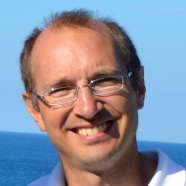
Xavier Gine is the Director of the World Development Report 2025. Prior to that, he served as a Lead Economist in the Finance and Private Sector Development Team of the Development Research Group at the World Bank. His research focuses on access to financial services, financial consumer protection and community driven development. Prior to joining the Bank he was a postdoctoral fellow and lecturer at the Economic Growth Center at Yale University. He holds a B.A. in Economics from Universitat Pompeu Fabra in Spain, an M.A. and a Ph.D. in Economics from the University of Chicago.

Joyce Antone Ibrahim is the Task Manager of the World Development Report 2025. She also served as the Task Manager for World Development Report 2024: The Middle-Income Trap and World Development Report 2023: Migrants, Refugees, and Societies. Prior to that, she spent nearly six years with the Subnational Doing Business Unit, where she led studies to assess the business environment in China, Malaysia, Nigeria and the United Arab Emirates. She also worked with the (former) Doing Business project on various indicators, including leading the dealing with construction permits indicator, as well as on financial inclusion and transparency issues within the World Bank. Joyce holds a Master’s of Arts in International Relations and International Economics from the Johns Hopkins University’s School of Advanced International Studies (SAIS) and a Bachelor’s of Science in Foreign Service from Georgetown University.
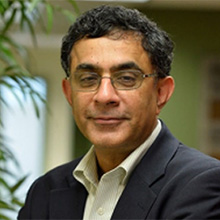
Devesh Kapur is the Academic Lead of the World Development Report 2025. He is also the Starr Foundation Professor of South Asian Studies at the Johns Hopkins University School of Advanced International Studies (SAIS) where he has taught since July 2018. Prior to that, he was a professor of Political Science and Director of the Center for the Advanced Study of India, holding the Madan Lal Sobti Chair for the Study of Contemporary India, at the University of Pennsylvania. Prior to his tenure at Penn, he was Associate Professor of Government at the University of Texas at Austin, and the Frederick Danziger Associate Professor of Government at Harvard. Kapur received the Joseph R. Levenson Teaching Prize, awarded to the best junior faculty at Harvard College and Outstanding Teaching in Political Science by the American Political Science Association, in 2005.
Kapur’s research has focused on five broad areas that examine the political and institutional determinants of economic development: international financial institutions; political and economic consequences of international and internal migration; the effects of market forces and urbanization on the well-being of socially marginalized groups in India; governance and public institutions; and higher education. His book, Diaspora, Democracy and Development: The Impact of International Migration from India on India (Princeton University Press) earned him a 2012 Distinguished Book Award of the International Studies Association, while The Other One Percent: Indians in America (with Sanjoy Chakravorty and Nirvikar Singh) was a Choice Outstanding Title of 2017. His other publications include The World Bank: Its First Half Century (with John Lewis and Richard Webb) and Defying the Odds: The Rise of Dalit Entrepreneurs (co-authored with D. Shyam Babu and Chandra Bhan Prasad). His latest edited works are Navigating the Labyrinth: Perspectives on India’s Higher Education (with Pratap Bhanu Mehta), Rethinking Public Institutions in India (with Pratap Bhanu Mehta and Milan Vaishnav), The Costs of Democracy: Political Finance in India (with Milan Vaishnav) and Regulation in India: Design, Capacity, Performance (with Madhav Khosla).
Kapur earned his BTech in Chemical Engineering from IIT (BHU) Varanasi, a Master’s in Science in Chemical Engineering from the University of Minnesota, and a Ph.D. from the Woodrow Wilson School at Princeton University.
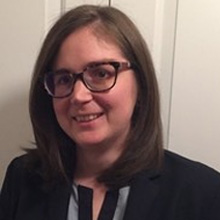
Claudia Berg is an Economist in the World Development Report team. Most recently, she worked in the Development Research Group (Sustainable Development and Infrastructure) where she contributed to the Policy Research Report Rethinking Resilience. Over the years, she worked in various positions across the World Bank, including the Poverty and Equity Global Practice, Sustainable Development Practice Group, among others. Her primary research interests include assessment of the economic and welfare impacts of policy and investment measures, such as microfinance, road infrastructure, poverty interventions, trade, and climate change. Outside the World Bank, she applied her skills at the International Monetary Fund and Inter-American Development Bank. She holds a PhD in Economics from George Washington University.
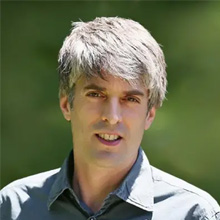
Milo Bianchi is a senior economist in the World Development Report team. Milo is also professor at the Toulouse School of Economics (TSE), director of the FIT-IN Initiative on digital payments, co-dean of the Fudan-TSE Research Institute of Innovation and Digital Economy and a member of the Sustainable Finance and the Digital Economics Centers at TSE. Milo’s research on digital finance, household finance and behavioral finance has been published in top economics and finance journals, and it has been featured in media and policy work. Milo has held research and teaching positions at the Massachusetts Institute of Technology, Paris School of Economics, University College London, Stockholm School of Economics, and Shanghai University of Finance and Economics.
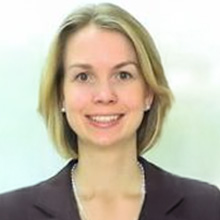
Miriam Bruhn is a Senior Economist in the Finance and Private Sector Development Team of the Development Research Group. She joined the Bank as a Young Economist in September 2007. Her research interests include the effect of regulatory reform on entrepreneurial activity, the informal sector, micro and small enterprises, financial literacy, and the relationship between institutions and economic development. She holds a Ph.D. in Economics from MIT and a B.A. in Economics from Yale University.
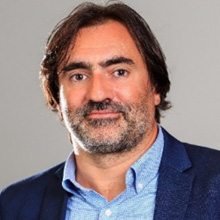
Xavier Cirera is a Senior Economist in the Markets, Competition and Technology Global Unit at the World Bank. He has more than 20 years’ experience working in different microeconomic areas of development; including innovation and technology policies, productivity, firm level dynamics and trade policy. He holds a PhD in Economics from the University of Sussex and prior to joining the World Bank he was a Research Fellow at the Institute of Development Studies at the University of Sussex. His most recent research work focuses on the measurement of firm-level technology adoption, the adoption of green technologies and the determinants and impacts of innovation and the relationship between misallocation, productivity and firm-growth. His most recent policy work centers around the evaluation of innovation and entrepreneurship policies, leading the development of the public Expenditure Reviews in Science, Technology and Innovation implemented in Brazil, Colombia, Chile, Thailand and the Ukraine. He is the co-author of the World Bank report The Innovation Paradox: Developing-Country Capabilities and the Unrealized Promise of Technological Catch-Up, A Practitioner’s Guide to Innovation Policy Instruments to Build Firm Capabilities and Accelerate Technological Catch-Up in Developing Countries and The Innovation Imperative for Developing East Asia. His latest book is Bridging the Technological Divide: Firm Technology Adoption in Developing Countries.
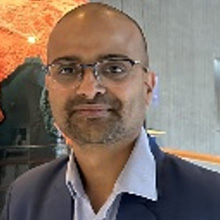
Siddharth Dixit is a research analyst with the World Development Report team. His research interests include economic development, technology policy, global health, data science, and machine learning. Before joining the World Bank, Siddharth worked as an associate in research at Duke Global Health Institute at Duke University. Siddharth holds a master’s in international development policy from Sanford School of Public Policy, Duke University, and a B.S. in Mechanical Engineering.
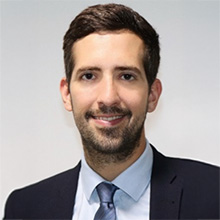
Philip Grinsted is a Private Sector Specialist in the Competitiveness Unit of the Finance, Competitiveness, and Investment (FCI) Global Practice at the World Bank. He focuses on the intersection of private sector development and sustainability, with expertise in green competitiveness, firm-level green technology adoption, and sustainable value chains. Philip also specializes in national quality infrastructure, advising clients on standardization and quality assurance—such as testing and certification—to strengthen market access and regulatory effectiveness. Additionally, he has experience in improving policy environments for digital businesses.
Before joining the World Bank, Philip worked at the German Agency for International Cooperation (GIZ), primarily in India and China, advising the German Federal Ministry for Economic Affairs and Climate Action (BMWK) on fostering trade with emerging markets through national quality infrastructure. He holds a dual Master of Public Policy (MPP) and Master of Public Administration (MPA) from the London School of Economics and Political Science (LSE) and the Hertie School in Berlin.
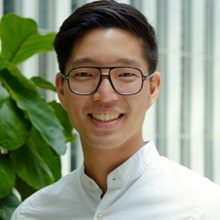
Galileu Kim is a Public Sector Specialist in the Public Institutions, Data and Analytics Global Unit of the Institutions Global Department. His work agenda focuses on how governments can leverage data and analytics to improve institutional capacity, with a methodological focus on large-scale administrative data and causal inference. Galileu is a member of the Bureaucracy Lab and has collaborated with counterparts in the Latin America and the Caribbean and Africa. He is a research fellow in Brazil’s National School of Administration (ENAP). Galileu holds a Ph.D. in Politics from Princeton University, and a B.A. in Political Science and Economics from the University of Pennsylvania.
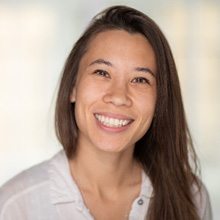
Penelope Ann Mealy is a Senior Economist at the World Bank, a Research Associate at the Institute for New Economic Thinking and the Oxford Smith School of Enterprise and the Environment, an Adjunct Senior Research Fellow at SoDa Labs at the Monash Business School, and an External Applied Complexity Fellow at the Santa Fe Institute. Her work applies various methods from complex systems and data science to analyse the interrelated challenges of climate change and economic development. Penny completed a PhD at the Institute for New Economic Thinking at Oxford University. She has held various research fellow roles at the Oxford Martin School, the Oxford Smith School of Enterprise and the Environment, the Bennett Institute for Public Policy at Cambridge University, and SoDa Labs, Monash University.
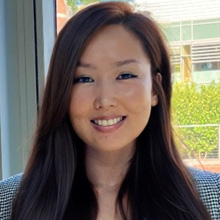
Bolor Munkhbayar is a Research Analyst for the World Development Report 2025 at the World Bank. She supports the team in data analysis for the report. Prior to joining the team, she worked at the Development Impact Measurement Department at the International Finance Corporation, where she contributed to project impact evaluation across Manufacturing and Agribusiness Services, and Financial Institutions Group industries. She holds a Master of Public Policy from Georgetown University and a Bachelor of Arts in International Relations from the National University of Mongolia.
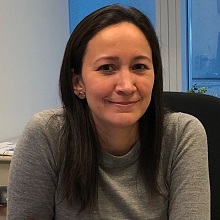
Claudia Ruiz is a Senior Economist in the Finance and Private Sector Development Team of the Development Research Group. She joined the Bank in September 2011. Her research has focused on understanding the impact that access to finance has on individuals and firms, and the role that financial services have in promoting economic development. She holds a Ph.D. in Economics from UCLA.
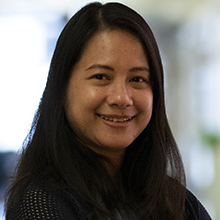
Sandi Soe Lwin provides technical and administrative assistance throughout the entire preparation of the World Development Report 2025. As part of her work, she manages consultant and firm contracts. Prior to joining the World Development Report team, she worked with the Strategy, Risk, and Country Community (OPSRR) in the Operations Policy and Country Services Vice-Presidency. She also worked with the World Bank’s Myanmar Country Office. Sandi holds a master’s degree in business administration from Assumption University (ABAC), and a Diploma in International Relations and Economic Policy of Southeast Asia from the International Center of Excellence (ICOE), offered at Yangon University in association with Johns Hopkins University.
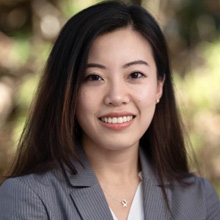
Ruozi Song is an Economist in the Sustainability and Infrastructure team of the World Bank’s Development Research Group. Her research focuses on sustainable energy, climate change adaptation, and the efficiency and distributional impacts of environmental policies. She holds a Bachelor’s degree in Statistics from Fudan University and a Ph.D. in Economics from the University of Southern California.
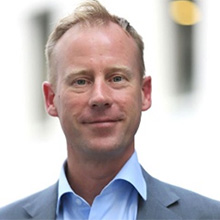
Melvin Spreij is a Senior Trade Specialist at the Word Bank’s Trade, Investment and Competitiveness (TIC) Department. Through analysis and operational support on the ground, he assists countries in complying with standards and facilitating trade. Prior to the World Bank, he led the Standards and Trade Development Facility (STDF), a global partnership to strengthen sanitary and phytosanitary (SPS) capacity in developing countries. Housed at the World Trade Organization (WTO), he managed the STDF’s trust fund and supported more than 250 projects in Africa, Asia-Pacific, Latin America and the Caribbean. He also led STDF’s knowledge hub, partnering closely with international and private sector organizations, development partners and beneficiaries. This included work on good regulatory practice, international standards, public private partnerships, and climate change and SPS risks. He has widespread expertise on agriculture, trade and development issues, working previously as a Counsellor in WTO’s Agriculture and Commodities Division, the Legal Office of the Food and Agriculture Organization (FAO), and other international organizations. He started his career as a commercial lawyer in The Netherlands and holds a civil and business law degree from the State University in Leiden, The Netherlands. He also studied briefly at the University of California in San Fransisco, United States. He has published on areas covering Aid for Trade, sustainable development, food safety and natural resources law.
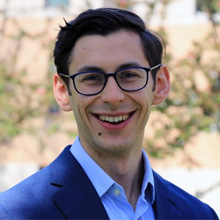
Lucas Zavala is an Economist in the World Bank’s Department of Development Impact. He studies competition in global value chains: how we measure it, how it is shaped by policy, and how it shapes the lives of firms and individuals in emerging economies. Before joining the World Bank, he was a Postdoctoral Fellow in the International Economics Section at Princeton University. He received his PhD in Economics from Yale University.
This site uses cookies to optimize functionality and give you the best possible experience. If you continue to navigate this website beyond this page, cookies will be placed on your browser. To learn more about cookies, click here.